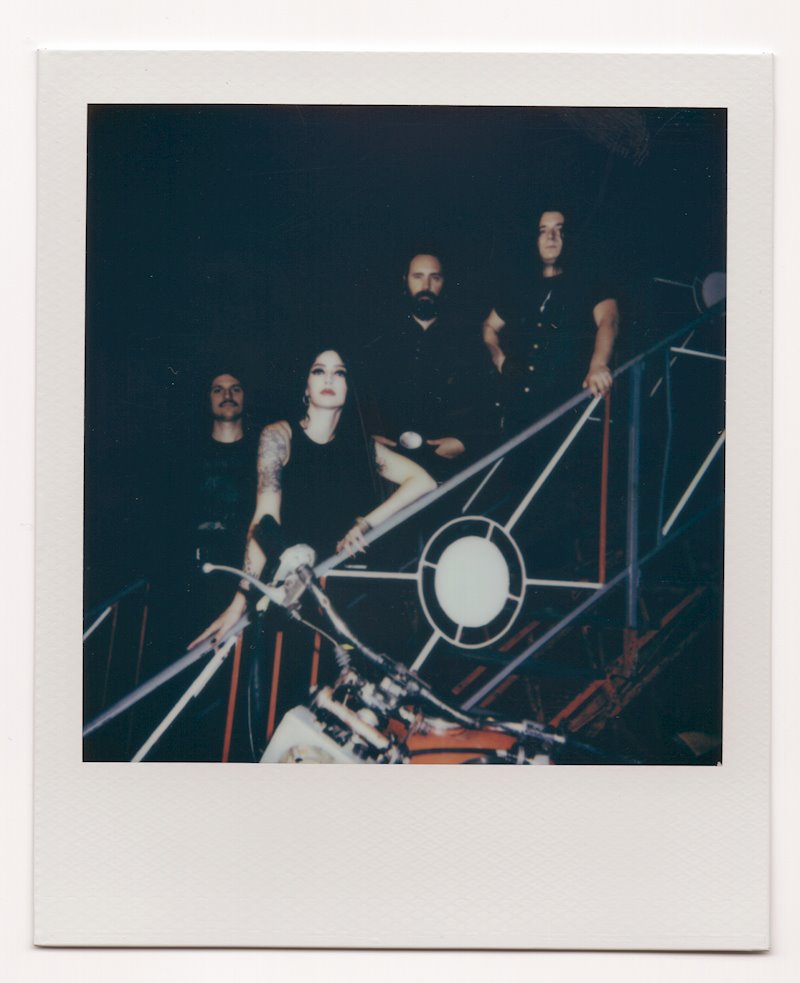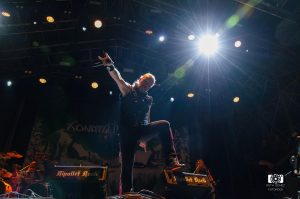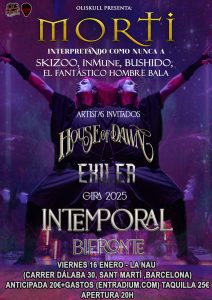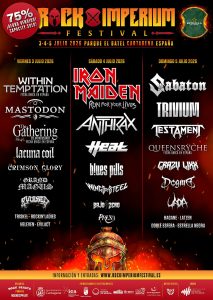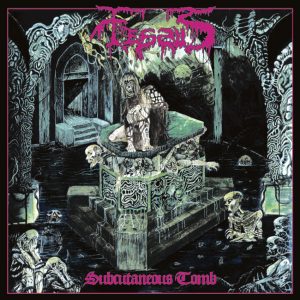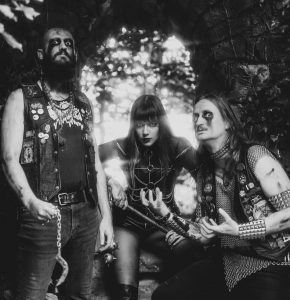INTERVIEW: MESSA: Rituals against the machine
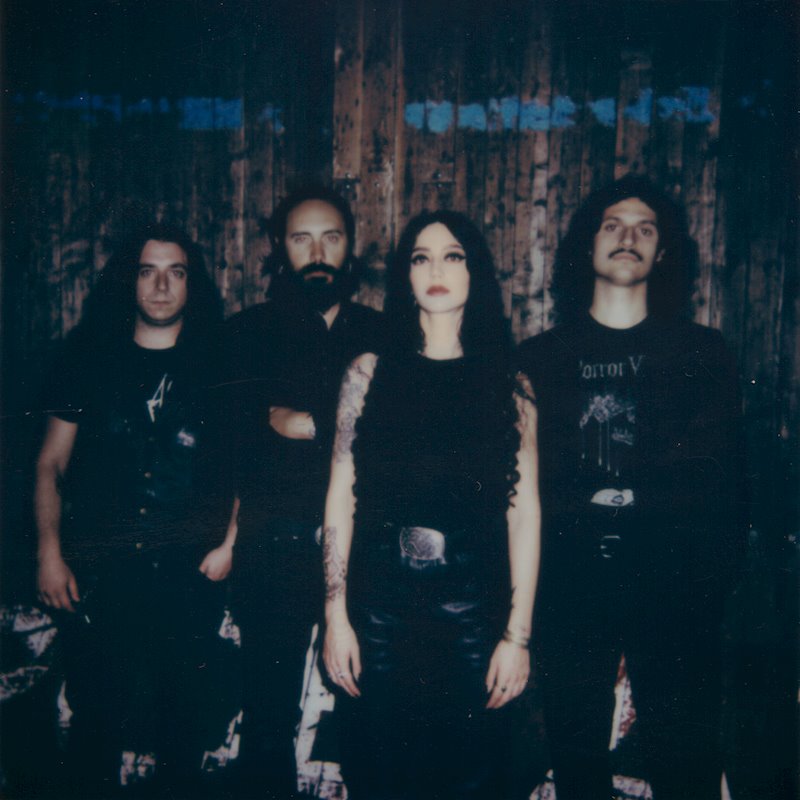
In an age where even rebellion is marketed and counterculture sold back to us in glossy packages, The Spin doesn’t ask for your attention—it commands it. In this raw and unfiltered conversation, the minds behind one of Italy’s most uncompromising doom metal acts speak with rare clarity about the role of art in a world suffocated by systems: patriarchal, capitalist, religious. Here, music is not escape—it’s confrontation.
The band dissects the quiet violence of the industry, the seductive danger of sensuality, and the razor’s edge they walk to preserve integrity while navigating a culture that consumes authenticity for profit. They speak of art as ritual, resistance, and rebellion; of femininity as insubordination; of the underground not as exile, but as liberation. Unapologetically political, defiantly slow, and rooted in a collective hunger for something real, their new work isn’t just an album—it’s a provocation. And in a world addicted to speed, surface, and silence, that might be the most radical thing of all.
-Hey, thanks for your time! You’re about to drop The Spin—how do you feel right now? Is it excitement, exhaustion, or a little bit of both?
S: We felt both. We put a lot into this record.
– Your music often carries a sense of ritual, of forbidden knowledge being unearthed. In a world where institutions—whether religious, political, or corporate—constantly seek to dictate morality, do you think art and music still hold the power to disrupt and challenge?
S: Absolutely. I think they do have a huge power. Art is a way to challenge yourself and the world around you. It’s deeply tied with the vision of the artist that creates it, and how they feel. It lets communication flow inward and outward. It’s one of the non-verbal ways of expression. You can say your own thing, either with metaphors or straight in peoples’ faces.
Art can provoke thought, consideration. It’s both analysis and discovery. It’s free, it becomes COLLECTIVE – it’s based on the act of sharing. Also because the artists share parts of their own self with other people, who can thus experience them.
Whether that is pain or happiness, or any other emotion in the huge human spectrum. There is a somewhat anarchic nature to it. Isn’t that insanely precious?
– Doom metal often embraces themes of suffering and rebellion, but in a world where struggle is romanticized and marketed—where even counterculture is repackaged for consumption—how do you navigate the line between genuine expression and industry exploitation?
S: It’s very, very difficult. We are kind of naive and genuine when it comes to this. We still have a certain dose of ‘healthy’ ingenuity for sure. That makes us face some of our goals in an authentic way, from our guts and not according to the mechanisms of the music business money machine.
We are aware that in order to keep doing music professionally, we have to adhere to some kind of marketing standard actions. That’s just how the music business works nowadays. But still we try to keep our hands on the wheel. There are some things and ‘contents’ we don’t feel like sharing with everyone, therefore we just won’t. We try to keep our balance. Sometimes it’s a fucking razorblade.
The main thing revolves around the sincerity of the artistic output, maybe. We know that our music is an honest representation of what/who we are.
– Extreme music has always been a space for outsiders, but not all outsiders are treated equally. Have you ever felt that the doom metal scene, despite its darkness and introspection, mirrors the same power structures and exclusions that it claims to reject?
S: It depends. Some people that belong to the ‘metal scene’ don’t even realize they are actually perpetrating some Patriarchal standards, for example. On the other hand, some others have a different attitude and become an active part in leaving these power structures behind.
– There’s an undeniable sensuality in your music—something raw, untamed, and unapologetic. In a society that still struggles with the concept of female autonomy and desire, do you see this as a form of defiance? Do you consciously weave these themes into your music?
S: That’s an interesting feedback. Sensuality, at least to me, is a pretty subjective matter. It comes from a place where sacred and profane entwine with each other. Sensuality can be violent, feral, harsh – but also soft and elegant. Every human carries it in a different form of their own. I’ve got my own thoughts as to what feels sensual to me. It is a blend of personality, intelligence, looks, and ‘bare’ instinct.
I recently read some erotic poetry by Anais Nin, and I found myself thinking about how the perception of female desire – and the female gaze of it – has been turned down, unconsidered, and kept on a corner for centuries. Patriarchy wants us (regardless of the gender) to fit a certain standard. I do see the feminine as an act of resistance, somehow. Hello, Lilith.
Therefore yes, I do feel that sensuality is surely an act of defiance and rebellion.
– Much of The Spin feels drenched in historical weight, evoking imagery of past civilizations, religious oppression, and ancient rituals. How much of the album is a conversation with history, and do you think looking back is the only way to move forward?
M: I wouldn’t say this record was produced with the idea of a “historical” conversation or journey in mind. It’s more of a collection of feelings and inspirations that came together to evoke new images and emotions in the listener.
We see the past as an important reference point for how we compose, behave, and view the world—but we are not defined by it. Let’s say we’re “seasonal” nostalgic people: there are times when we feel deeply nostalgic, and others when we don’t at all.
– We live in an era of instant gratification and overstimulation, where nuance is often sacrificed for speed. Doom metal, by its nature, demands patience and immersion. Do you see this as a form of resistance against the current cultural climate?
S: I totally agree with you when it comes to instant gratification and overstimulation. But the devil’s in the details.There’s no synthesis without analysis. And this process requires patience. In a world where people can’t fucking type a text properly anymore because many started using ChatGPT, and artists’ work is being literally stolen under the sun and nothing is barely true anymore: please let’s welcome humanity, time, blood and guts. I want something real, with its imperfections or flaws. From relationships to a few ripe fruits and books.
This being said, I think our music requires patience, immersion, and often more than one listening session to be completely absorbed.
– Italy has a long, complicated history with power—whether through the Catholic Church, political instability, or economic struggles. Do you think growing up in this environment has shaped your perspective as artists? And do you think it bleeds into The Spin in any way?
M: No, I don’t think so. All the things you mentioned didn’t really shape us, or romantically influence our artistic identity. To be honest, I think they’ve just been a fucking obstacle in getting things done.
– Your sound blends diverse influences, from Mediterranean folk to jazz and drone. In an age where borders are reinforced and cultures are often pitted against each other, do you see your music as an act of defying division?
M: Well, that’s a huge topic—it would be hard to sum it up in a single answer. We believe that cultural differences make everyone stronger and intellectually healthier. What we don’t believe in though, is the homogenized and globalized world shaped by the mere logic of capitalism.
– Many of the album’s lyrics and themes revolve around forbidden knowledge, exile, and transformation. Do you see yourself as artists working outside the mainstream, in exile from the «acceptable» face of music? And if so, do you embrace that position?
S: As previously said, I think that everything comes down to honesty, after all. I, for one, prefer the underground dimension for various reasons. It’s more suitable for the kind of person I am. And I feel fine knowing that MY own definition of ‘acceptable’ is driving me – nobody’s imposing something on me.
– Finally, looking ahead—what’s next for Messa? Thank you for your time.
S: We’ll be playing some festivals during the summer and then we’ll embark on a journey with Paradise Lost during next Fall. We’ll be opening all the shows of their ‘Ascension of Europe’ Tour and we’re really excited about it.
Thanks for having us 🙂

